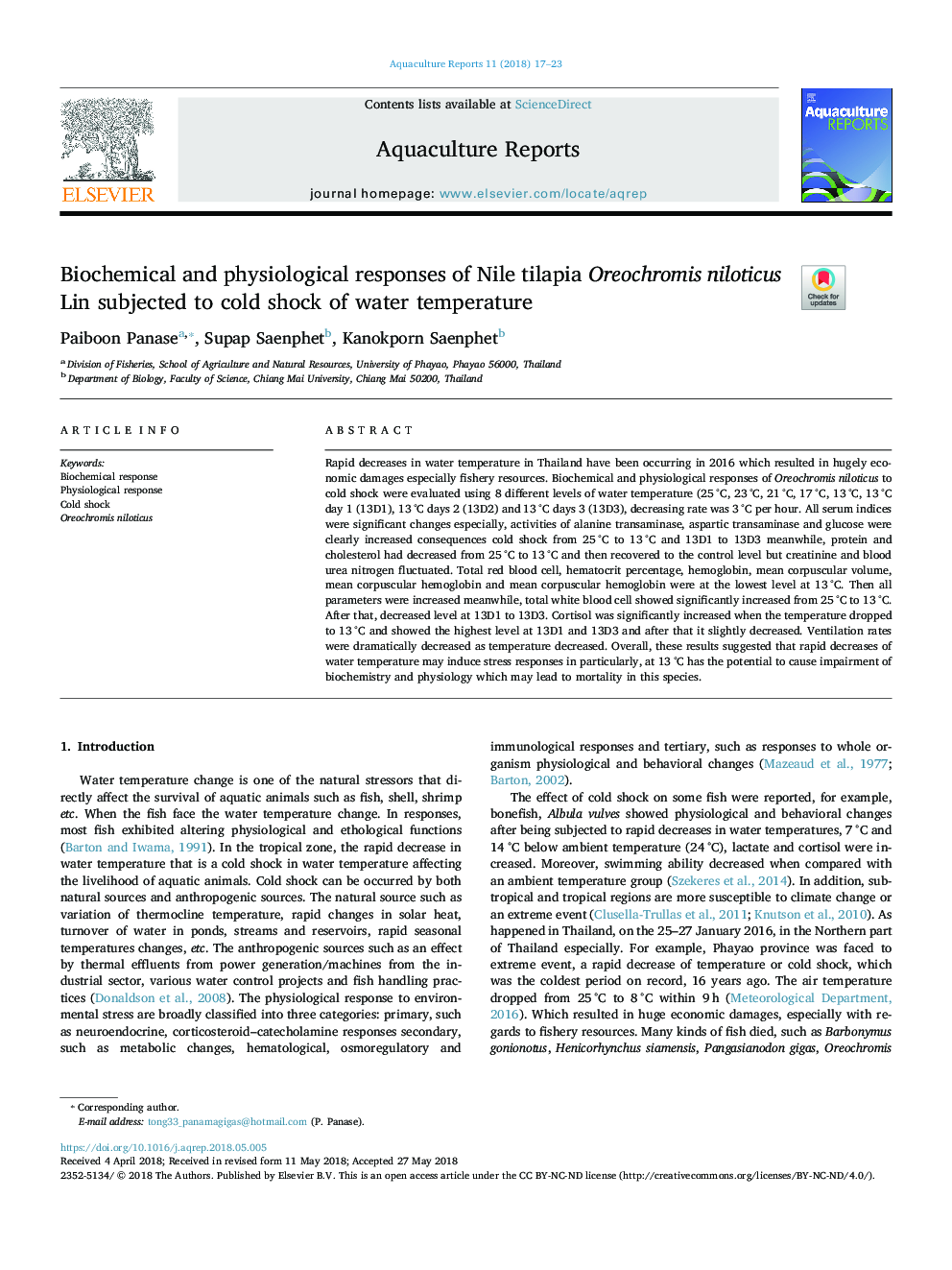| Article ID | Journal | Published Year | Pages | File Type |
|---|---|---|---|---|
| 8863311 | Aquaculture Reports | 2018 | 7 Pages |
Abstract
Rapid decreases in water temperature in Thailand have been occurring in 2016 which resulted in hugely economic damages especially fishery resources. Biochemical and physiological responses of Oreochromis niloticus to cold shock were evaluated using 8 different levels of water temperature (25â¯Â°C, 23â¯Â°C, 21â¯Â°C, 17â¯Â°C, 13â¯Â°C, 13â¯Â°C day 1 (13D1), 13â¯Â°C days 2 (13D2) and 13â¯Â°C days 3 (13D3), decreasing rate was 3â¯Â°C per hour. All serum indices were significant changes especially, activities of alanine transaminase, aspartic transaminase and glucose were clearly increased consequences cold shock from 25â¯Â°C to 13â¯Â°C and 13D1 to 13D3 meanwhile, protein and cholesterol had decreased from 25â¯Â°C to 13â¯Â°C and then recovered to the control level but creatinine and blood urea nitrogen fluctuated. Total red blood cell, hematocrit percentage, hemoglobin, mean corpuscular volume, mean corpuscular hemoglobin and mean corpuscular hemoglobin were at the lowest level at 13â¯Â°C. Then all parameters were increased meanwhile, total white blood cell showed significantly increased from 25â¯Â°C to 13â¯Â°C. After that, decreased level at 13D1 to 13D3. Cortisol was significantly increased when the temperature dropped to 13â¯Â°C and showed the highest level at 13D1 and 13D3 and after that it slightly decreased. Ventilation rates were dramatically decreased as temperature decreased. Overall, these results suggested that rapid decreases of water temperature may induce stress responses in particularly, at 13â¯Â°C has the potential to cause impairment of biochemistry and physiology which may lead to mortality in this species.
Related Topics
Life Sciences
Agricultural and Biological Sciences
Animal Science and Zoology
Authors
Paiboon Panase, Supap Saenphet, Kanokporn Saenphet,
